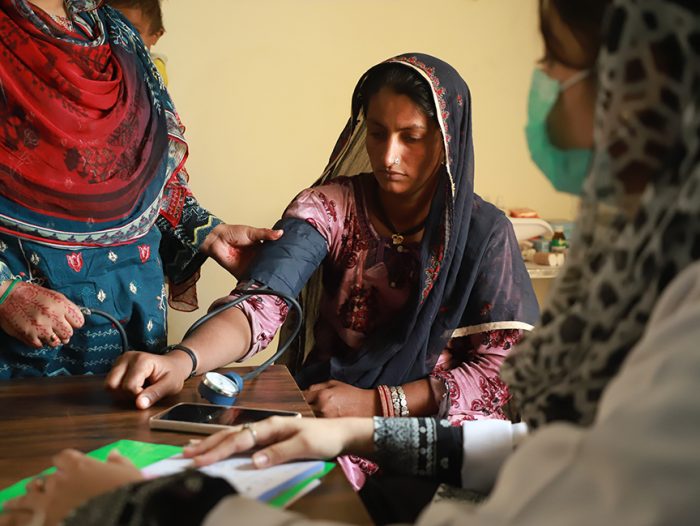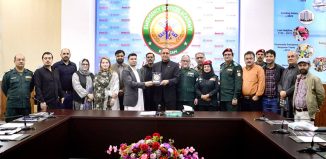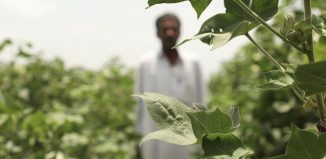Reviving Hope: Making Quality Healthcare Accessible to remote communities in Pakistan’s desert lands
“It became quite burdensome to make the weekly trip to Umerkot for my regular check-ups. This necessitated a significant expenditure of both energy and money, as one cannot visit a hospital in Umerkot without having at least three thousand in their pocket. Upon reaching the hospital, I often found myself lacking sufficient funds to purchase all the prescribed medicines, ending up with only buying a few out of the lot,” shared Cheeno, an 80-year-old grandfather living in the small village of Ramsar, located 65 kilometres away from Umerkot city. The little village is connected by a road to the rest of the district.
With age, Cheeno developed several health issues, including Acute Respiratory Infection, making him susceptible to coughs and flu even in hot weather. “It was challenging for me to walk the 10 kilometres distance to reach the road from our village where one could catch a ride to Umerkot city. I recall that the journey to Umerkot for my check-ups would worsen my condition, and by the time I reached the hospital, walking became troublesome,” explained Cheeno. The journey to Umerkot has consistently proven exhausting for residents of Ramsar, but they had not choice if they wanted to prioritise their health and get a check-up done at a health facility. That was the nearest to them.
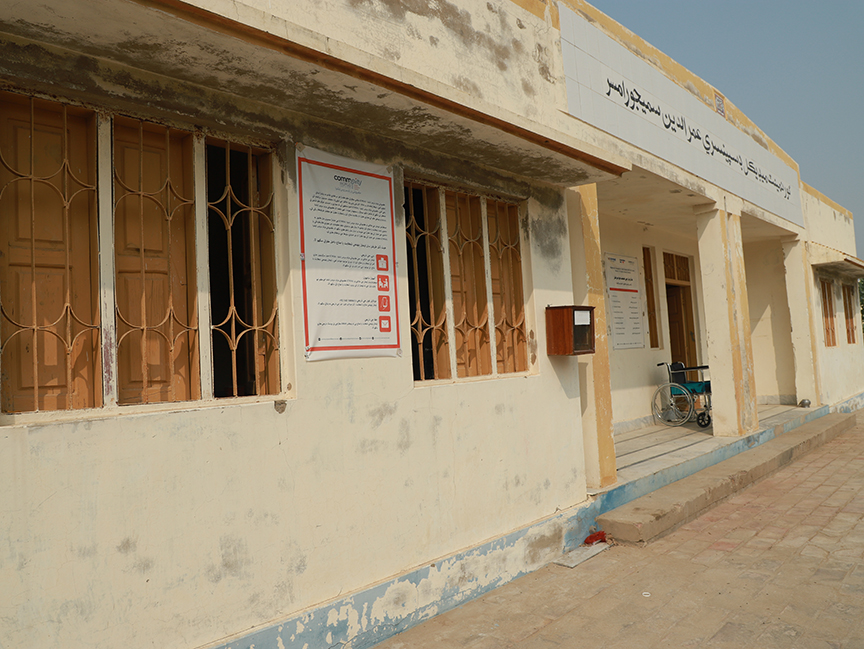
Cheeno is blessed with fifteen grandchildren; nine boys and six girls. He has twenty-three members in his family, including his wife, three sons, and their families. All three of his sons work as labourers on agrarian fields alongside their wives to ensure three meals for their children and parents. They work on daily wages for land owners.
With all his sons working (though only seasonally), which is a big blessing for families living in rural Umerkot, Cheeno has lived his set of struggles. He reflects on the challenges the family has faced, “My wife cannot walk; she has weak legs. Sometimes, I had to carry her on my back to the road to take her to Umerkot for her medical treatment. We were leading a very difficult life.” With limited access to health facilities, most families, especially elderly and those disabled, faced severe challenges to access even the most basic health care.
In July 2022, Community World Service Asia (CWSA) operationalised a public dispensary and initiated quality health services in Ramsar. The dispensary had been non-functional previously due to lack of resources, such as medical staff, equipment and medicines. In collaboration with Act for Peace (AFP) and with the support of the Australian government, CWSA launched this health project1, operating from a government dispensary and, over the past year, has provided free medicine and diagnosis to over 7,000 patients.
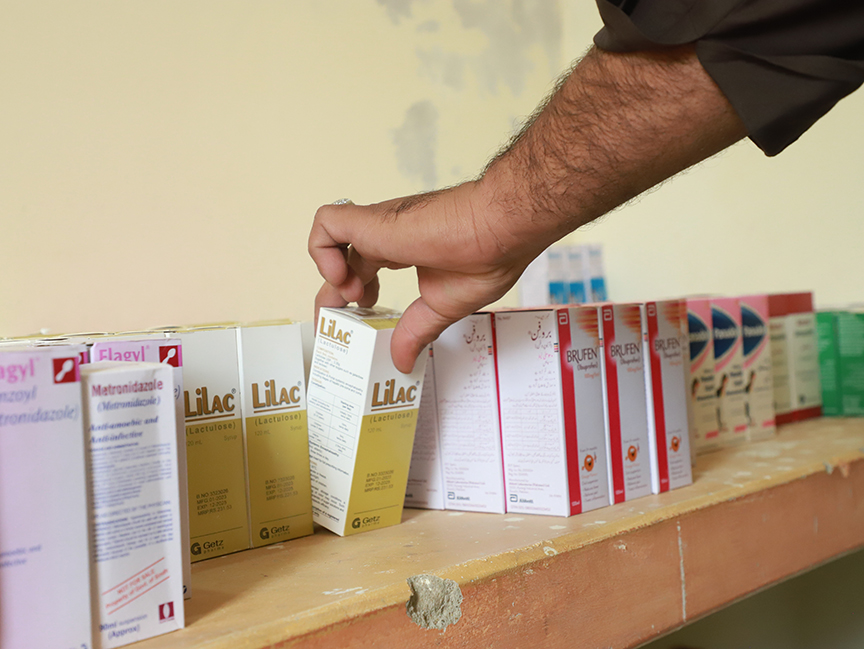
“When I first learned that the dispensary was functional, I felt relieved and happy. Now, we could obtain medicines by walking just a few meters. Since discovering this dispensary, we have stopped taking the long rides to Umerkot. During my initial visit to the dispensary in August 2023, I experienced severe respiratory problems that I have been suffering from due to old age. To my surprise, I was given medicines for free. These medicines really helped me,” shared Cheeno. He continues to visit the dispensary whenever he runs out of medications, and his tendency to catch the flu has significantly diminished. Presently, he only suffers from a cough, attributed primarily to physical weakness and age.
Community World Service Asia has been providing a range of medical services at the Ramsar Dispensary, including OPD services with vital medicines offered free of cost. Awareness raising sessions on family planning and women’s reproductive health, antenatal and postnatal care services, baby delivery services, and general well-being counselling sessions are conducted at the dispensary and with the community members on a regular basis. Cheeno’s family has been availing these health services ever since its launch.
Village Committees have actively participated in this project through health education sessions, international days, capacity-building trainings, and meetings held in their villages and at dispensaries. The community has supported organising these events, disseminated health awareness, and referred patients to clinics. They have also ensured the protection of dispensary staff and medical equipment. As a result of these interventions over the past two years, health awareness has increased, leading to improved women’s health and reduced infant mortality. Prior to CWSA’s involvement, the village of Ramsar had numerous kidney disease cases. Now, due to proper medication and awareness sessions, the situation has significantly improved.
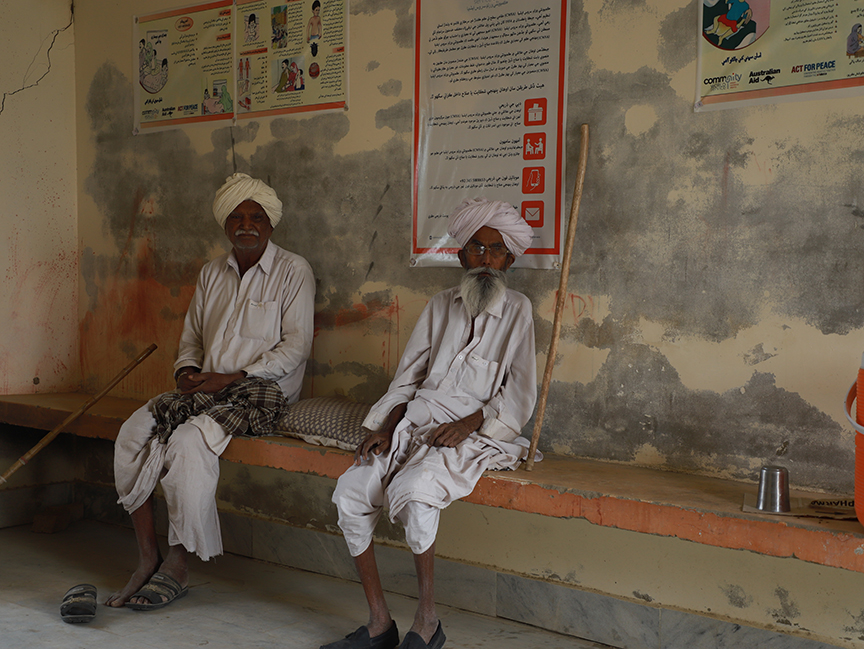
“When I first came here with my son, we realised we had to tell everyone at home about this dispensary since it was such a blessing. I was eager to bring my wife here as she needed treatment for her weakness and recurrent illnesses too. She was prescribed different calcium and vitamins, and gradually, she was able to take a few steps on her own,” shared Cheeno. This marked a significant relief for Cheeno, as his wife, who was almost bedridden due to her weak legs, could now walk. Following Cheeno, all his other family members, especially the women, have become regular visitors at the dispensary. From his daughters-in-law receiving baby delivery services to his grandchildren availing regular medical check-ups, the Ramsar Dispensary has addressed many healthcare needs for Cheeno’s family and many others living in the area.
Under its health program, Community World Service Asia has extended primary healthcare services in three Union Councils (UCs) – Faqeer Abdullah, Sekhro, and Kaplore – in District Umerkot. The health centres have prioritised Maternal, New-born, and Child Health (MNCH) by operating in three government health dispensaries in collaboration with the district health department. “I used to take loans from landlords for my visits to Umerkot, but now we are happy and less burdened. We have a great service nearby, and we are even able to save the money that we used to spend on medicines, all thanks to CWSA and AFP,” smiled Cheeno.
- Improving Health and Education Services in Migration Prone Union Councils of District Umerkot ↩︎





